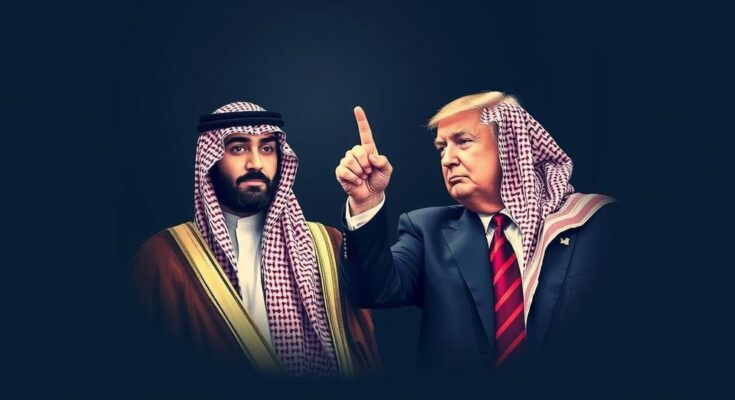Arab leaders congratulated Donald Trump on his election win, expressing hopes he may end Middle East conflicts. However, there are concerns about Iran and the Israeli-Palestinian situation. Key leaders emphasize peace in Gaza as crucial for regional relations, while analysts suggest Trump will pressure Israel to conclude hostilities. The dynamics of U.S. policy in the region remain uncertain as Trump prepares to take office.
Arab leaders have expressed their congratulations to Donald Trump following his victory in the U.S. presidential election, with sentiments ranging from optimism about his potential to resolve ongoing conflicts in the Middle East to concerns about the handling of Iran. Leaders from Saudi Arabia, the United Arab Emirates, and Qatar emphasized the importance of strategic partnerships and hope for peace in areas like Gaza and Lebanon, following Trump’s campaign focus on personal relations with these states. Dania Koleilat Khatib, president of the Research Center for Cooperation and Peace Building in Beirut, highlighted that while Arab leaders desire an end to wars, the specifics of such resolutions remain unclear. The situation in Gaza is particularly precarious, with Crown Prince Mohammed bin Salman asserting that normalization with Israel hinges on establishing a Palestinian state. Critics worry about escalation from Israeli forces, particularly concerning Iran, positioning Trump’s administration at a crossroads. Responses from regional governments reflect apprehension and the expectation of decisive action from Trump. Analysts like Osama Al Sharif predict that Trump may press Israeli Prime Minister Benjamin Netanyahu to conclude military actions before assuming office in January 2021, given the detrimental impact of these conflicts on public perception. Trump’s isolationist tendencies are expected to influence his approach towards Iran, which may include reinforcing economic sanctions while possibly engaging through intermediaries like Russia. Nonetheless, there are fears that Trump’s decisions could complicate matters for Palestinians and neighboring regions, particularly if he recognizes Israeli annexations in the West Bank under the current government. The balance of power, regional stability, and the prospects for peace remain uncertain as international leaders await Trump’s forthcoming policies to shape the Middle Eastern landscape.
The background of this article centers on the reactions of Arab leaders to the 2020 U.S. presidential election, particularly the unexpected victory of Donald Trump. Historically, U.S. foreign policy has played a pivotal role in shaping Middle Eastern dynamics, influencing conflict resolutions, alliances, and diplomatic relations in the region. The commentary from regional leaders underscores their hopes and concerns regarding Trump’s ability to fulfill promises of peace and security, particularly in light of ongoing tensions with Iran and the longstanding Israeli-Palestinian conflict. These reactions reflect the intricate web of geopolitical relationships and strategic interests that define Middle Eastern politics.
In conclusion, the congratulatory responses from Arab leaders to Donald Trump’s election highlight a complex mix of hope and apprehension regarding future U.S. foreign policy in the Middle East. While there is optimism that Trump could mediate resolutions to significant conflicts, particularly in Gaza and Lebanon, concerns about Iranian tensions and Israeli actions complicate the potential for effective diplomacy. As regional leaders call for a stronger U.S. stance against Iran and a clear commitment to Palestinian statehood, the forthcoming administration’s actions will be crucial in shaping the future stability of the region.
Original Source: www.voanews.com




